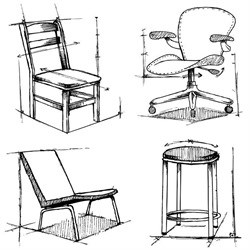
The Eastern Cape Development Corporation (ECDC) has spent R2.5 million testing the development of furniture from polyfibre in two pilot projects. This has already secured the interest of the dti, which has set aside R54 million from its employment creation fund for commercialisation.
The Department of Economic Development, Environmental Affairs and Tourism (DEDEAT) brought to ECDC a funded project to establish buy-back centres around solid waste disposal sites. The development financier was asked to turn unemployed people, who collect plastic material at these sites, into entrepreneurs.
"The people were then organised around co-operatives with the first buy-back centre established in Stutterheim followed by Grahamstown and Port Alfred. In this arrangement, the co-operatives organised around the buy-back centres collect plastic in all forms, which is then packaged and sold to ECDC's partner, Iwars," explains ECDC risk capital specialist Phakamisa George.
"A woman's co-operative in Port Alfred has also been set up to collect waste from pineapple leaves from farmers and strip it into thin fibres, which are then sold to Iwars to create the second ingredient in the furniture making process. Iwars then mixes the plastic with fibre from plant material and produces furniture.
"In the first pilot, R1 million was spent in the design and preparation of the pilot site and setting up two buy-back centres. A total of R1.5 million was spent on the second phase, which was a commercial pilot.
The pilot is now in its final stages and it is awaiting certification from the South African Bureau of Standards (SABS) in order to commercialise the project. The commercial pilot, machines and a small plant in Port Alfred have been set up for manufacturing window and door frames, outdoor furniture and other types of furniture. The Department of Human Settlements has already indicated an interest in acquiring the furniture for RDP houses, once SABS certification has been received.
The dti funds will be used to set up a fully-fledged plant to put up machinery and for working capital. The plant will be 30% owned by the buy-back centres in the form of the co-operatives. ECDC's R2.5 million will be converted to equity as well.
"This is only one of many high-value projects ECDC is pursuing toward economic growth and employment creation. ECDC committed R10 million of its risk capital facility on 2013/14 and by then end of the year had spent R8.7 million on the scoping and implementation of projects. The financier is delighted that it also secured R104 million in third-party funding for the implementation of development projects," continues George.
Furthermore, ECDC is continuing with the implementation of the R250 million Karoo Catch aquaculture project in Graaff-Reinet. In 2013/14, the Blue Karoo Trust completed the construction of two fishing ponds, nursery and training academy that will focus on aquaculture training for young people. It has also provided a production facility for Khuphukani Leather, an Mthatha-based shoe-making operation by disabled entrepreneurs. It was funded by DEDEAT's LRED fund with R2 million and R1.7 million by ThinaSinako.